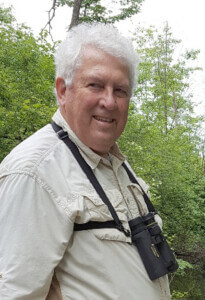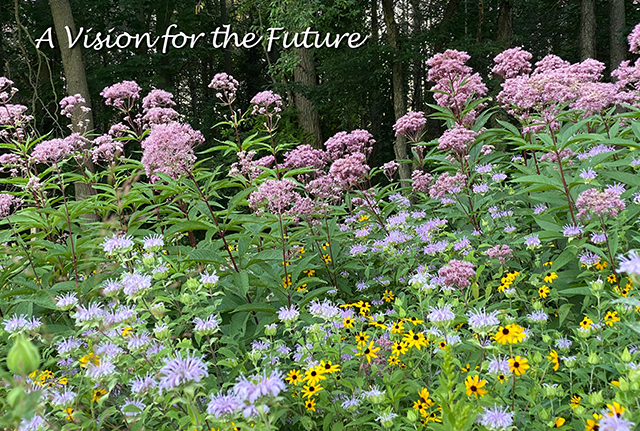
Vision for the Future
by Ranger Steve Mueller
An exciting year waits for aiding plant and animal nature niches. Every year is a new beginning with hopes for keeping New Year’s resolutions, but most are not kept. Our nature niche can be to enhance living conditions for yourselves and others with whom we share “creation care.” Species have unique responsibilities that they know nothing about. They simply go about their essential work without a conscious plan.
We are different. Our abilities allow making decisions to redirect the future toward a sustainable economic, social, and environmentally healthy planet. Many people go about living without a creation care vision as a core value for present and future life. I heard it said, many of us have something the “materially rich” do not have. We have “enough.” Living conservatively within our means is an essential attribute to support the greatest variety of species for abundant biodiversity.
One aspect I have commented on occasionally is species overabundance. Recently, I described the harmful effects of the oak wilt fungus and emerald ash borer beetles that have caused damage in ecosystems. Any species that becomes excessively abundant destroys conditions for healthy habitats and impairs a rich future.
Another important action for the future is to slow habitat loss by sharing small or large yards with other species. Research shows a continuous wild species decline in population numbers during the past century as well as massive species extinctions. The rate of decline is accelerating. Studies usually do not indicate the role of human population abundance in the discussion, because it is an unsavory “hot” point.
Science magazine reported an average butterfly population decline of 1.6% per year over 40 years. Other insect mass has declined by 2.5% per year with bird populations declining by 29% in 50 years. Planting native plants encourages increased biodiversity for all species.
In other writings, I shared how snowplows were used to remove mayflies on bridges that caused slippery roads when my mother was a child in the 1920s. Reduced aquatic insect populations impacts fish abundance, stream health, lowers water quality, and nutrient recycling. More nutrient runoff increases pollution and bacterial growth.

The vision we take for future decades can reverse the trend of species loss and wild population declines while enriching living conditions, food, and enjoyment for our own species. Whether people are narrowly human focused or creation care focused, both have a common goal for a sustainable planet.
Plan to reduce sterile lawn habitat by allowing native plant species to populate portions of your home site. This is among the best methods for creation care. Margaret Mead said, “Never doubt that a small group of thoughtful, committed citizens can change the world; indeed, it’s the only thing that ever has”.
You are the hope for the future for us and native plants. It requires a vision to allow portions of your yard to live wild and full of abundant life. Instead of a New Year’s resolution to save the planet, allow native plants adapted to the local environment to thrive in your yard. Enhance life by encouraging native species. Do not make it harder than necessary. Allow native species to enchant your family’s life with beauty, joy, and health and pass on a future vision to generations coming after us.
Natural history questions or topic suggestions can be directed to Ranger Steve (Mueller) at [email protected] – Ody Brook Nature Sanctuary, 13010 Northland Dr. Cedar Springs, MI 49319 or call 616-696-1753.
